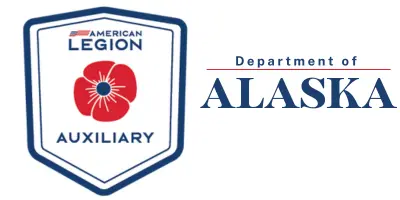ALA Finance Committee
Purpose: The purpose of the national Finance Committee is to oversee the development and implementation of general national financial policy subject to approval or ratification by the National Executive Committee, and to provide oversight of budgeted funds in the budget and report any significant variance to the National Executive Committee. Standing Rules #6, Core National Standing Committees.
Key Program Statements:
- American Legion Auxiliary National Finance Committee
- Finance Committee Roles and Responsibilities
- Finance Committee Responsibilities
- Governing Board delegated powers
ASSET DEVELOPMENT and FUNDRAISING
Assets are items that can be converted to cash: furniture, investments, receivables or special project funds. The Finance Committee is responsible for the oversight of assets.
The committee is also responsible for ensuring the operation and programs of the organization are adequately funded through diversification of funding sources. Diversification means not relying on one primary funding source (like membership dues). A variety of income streams are necessary so that the organization is less vulnerable should there be a downturn in membership or in the economy.
Relying on membership dues for the majority of the department’s revenue stream is not a best practice. The Department Committee should work with the staff and leadership to develop an annual fundraising campaign plan that encompasses several techniques for generating additional revenue streams. These can be from indirect donations, corporations, donations, special event fundraising, direct mail fundraising, planned giving programs, and in-kind donations.
Get Involved
Purpose: The purpose of the national Finance Committee is to oversee the development and implementation of general national financial policy subject to approval or ratification by the National Executive Committee, and to provide oversight of budgeted funds in the budget and report any significant variance to the National Executive Committee. Standing Rules #6, Core National Standing Committees.
American Legion Auxiliary Department or Unit Finance Committee
- The Department or Unit Finance Committee’s Purpose:
- Oversight of the general financial policy of the organization
- Preparation of the annual budget
- Supervision of the expenditures under that budget
Finance Committee Roles and Responsibilities
- Asset Development and Protection/Fundraising/Budgeting:
- The department or unit may adopt targets for expected accomplishments — and suggest performance measures to evaluate progress toward those targets which are outlined in the annual budget development.
- Finance Committees often focus only on the current year’s budgeting process and forget to look three to five years ahead. The committee should reflect on trends of the recent past and how those items can impact current and future planning.
- Each department or unit may want to replicate this process of setting goals through a long-range plan. For the Finance Committee to advise the organization on how to acquire and spend resources, it would be helpful if it is tied to those goals.
- The department or unit may measure where it is now and set goals to strive to reach the benchmarks for expenses and to broaden the sources of potential income streams.
- At each of your finance meetings, the progress toward those annual and multi-year goals should be reviewed.
- Remember: Members need to understand and be able to measure the progress of the organization through reports of the Finance Committee.
- At a minimum, key financial Indicators need to include the benchmarks expected by the Internal Revenue Service (IRS) and nonprofit watchdog organizations. There are three key expense benchmarks:
- Program Services (expenditures related to the organization’s primary mission and purpose): the target is 65-75%.
- Management and General Administrative (expenditures spent on managing the operations of the organization): the target is 10-15%.
- Fundraising (expenditures spent on raising additional funds for the organization’s purpose and mission expenses, i.e. grants, planned giving, endowments, direct mail campaigns, etc.): the target is 5-10%.
- Potential donors expect the majority of the funds collected by a nonprofit organization are designated to supporting the mission of the organization through its programs.
- On the revenue side, setting targets is more difficult because there are no specific industry benchmarks other than to have a variety of revenue streams that reduce your dependence on any one source.
- The American Legion Auxiliary is a membership organization, so we rely on member dues to cover our expenses.
- By bringing in other resources such as grants and donations, corporate sponsorships, special events and bequests, we can lower the dependence on dues and/or reserves alone to meet our obligations.
- The ability to build up financial reserves is important for the future to ensure resources are available to maintain operations of the department or unit if needed. The recommended amount of reserves/savings is 2.5 times the annual budget of the organization. For example, an organization with a $10,000 budget would try to maintain $25,000 in reserves for emergencies and have a plan to replenish when withdrawals are made.
Governing Board Delegated Powers
- Financial Reporting/Audits:
- The Finance Committee should share the financial data with the members who are the investors of the organization and who have a legal right to know how their investments are being managed.
- The Finance Committee makes recommendations to the governing body of the department or the unit, the Department Executive Committee, or the Unit Executive Committee/Unit membership and that body is responsible for the actual policy decisions.
- The Department Executive Committee or Unit Executive Committee/Unit membership needs to receive clear, timely, and accurate information regarding the financial status of the organization at each of their meetings and at additional times as needed.
- The Finance Committee ensures that all tax reporting is completed within appropriate timeframes for federal, state, and local jurisdictions. The IRS requires small charities to submit an annual electronic report, known as a Form 990. This is a requirement for every department and unit. The Form 990-N, entitled the Electronic Notice for Tax-Exempt Organizations Not Required to File Form 990 or 990-EZ (and also known as the e-Postcard) is required of charities whose annual gross receipts are $50,000 or less. www.irs.gov
- The Pension Protection Act also requires the IRS to revoke the tax-exempt status of any organization that fails to meet its annual filing requirement for three consecutive years. This requirement applies to small tax-exempt organizations and those filing the e-Postcard.
- The Finance Committee is given the audit for review, while the outside auditor presents the audited financials to the governing body of the department or unit.
Deadlines/Important Dates
File the Form 990 by the 15th day of the 5th month after the close of the fiscal year.


